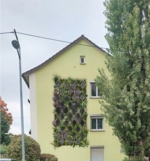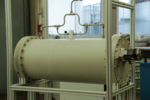Perspectives on the bioeconomy
The sustainable economic system known as the bioeconomy is based on two main pillars: the use of renewable raw materials rather than fossil raw materials, and biobased innovations. The aim of the bioeconomy is therefore not only to replace fossil raw materials, but also to develop completely new products and processes. In so doing, it contributes to and creates the conditions for a closed circular economy. Baden-Württemberg has the skills necessary to do this and the political will to promote the development of the bioeconomy.
It is often a long journey from an idea to industrial implementation and marketability. The first step involves perceiving a problem, because problem awareness can open the door to solutions. In the case of the bioeconomy, completely new ideas and technological perspectives are required, along with new approaches to existing technical systems. Political framework conditions and social dialogue on the environment, climate and sustainability are forces that can drive the transition to a biobased economy.
A growing understanding of global biological systems has led to many innovation success stories in the life and engineering sciences. The main focus of these activities is the benefits for humans and the environment. Research and development in research institutes and universities, start-ups, small and medium-sized enterprises (SMEs) and large-scale industry make important contributions to the development of a sustainable, internationally competitive economic system based on biological raw materials and processes. The idea is to apply new approaches along the entire value chain: raw material cultivation, process and product development as well as the recycling of residual materials. Examples include new cultivation methods, biotechnologically produced fine and specialty chemicals and the use of algae for energy production or as a source for pharmaceuticals.
A bioeconomy can create growth, prosperity and employment. But it does so on a different resource base. In Baden-Württemberg this is linked politically to a firm commitment to sustainability.
The work being done and the advances in the area of innovative processes, technologies and concrete products are described on the following pages.


